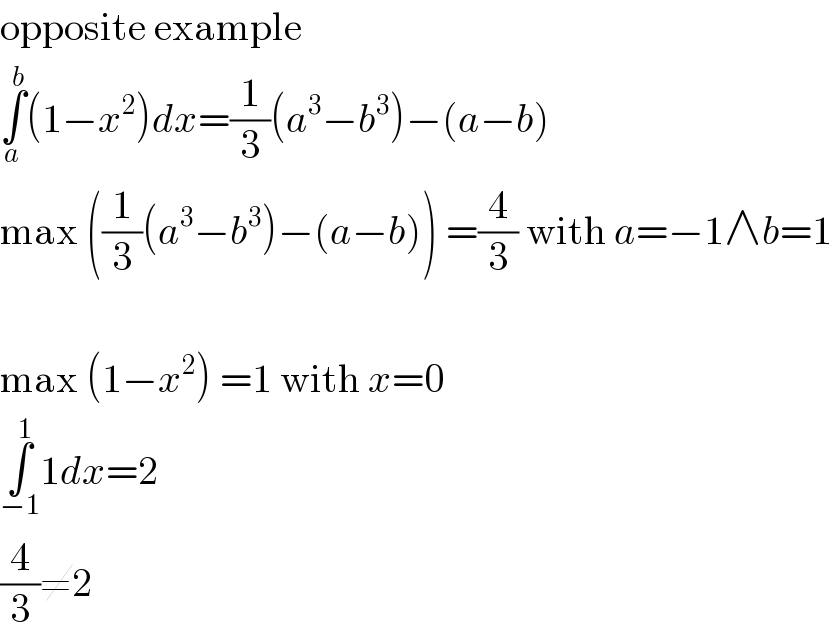
Question and Answers Forum
Previous in Relation and Functions Next in Relation and Functions
Question Number 63389 by mathmax by abdo last updated on 03/Jul/19
![f function integrable on [a,b] is max ∫_a ^b f(x)dx =∫_a ^b maxf(x)dx? if not give a opposite example .](Q63389.png)
Commented by MJS last updated on 03/Jul/19

Commented by mathmax by abdo last updated on 03/Jul/19

